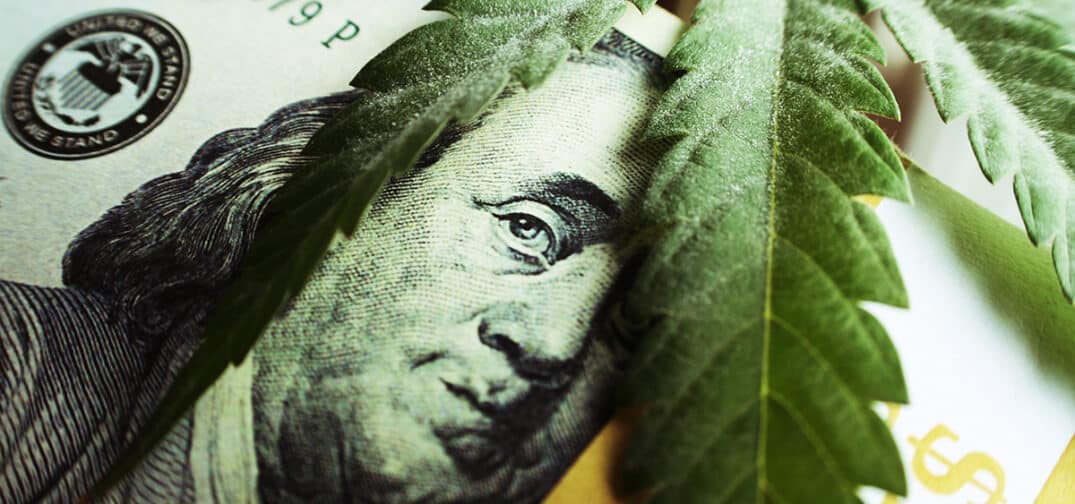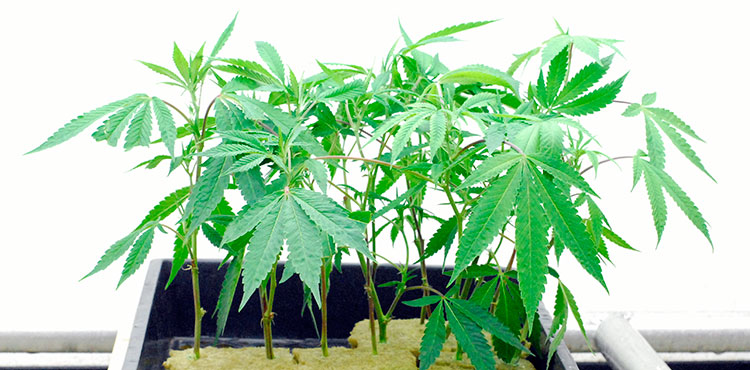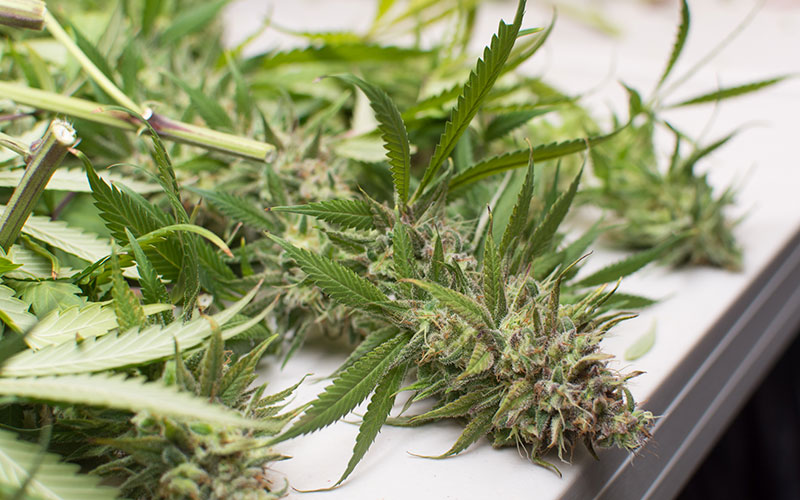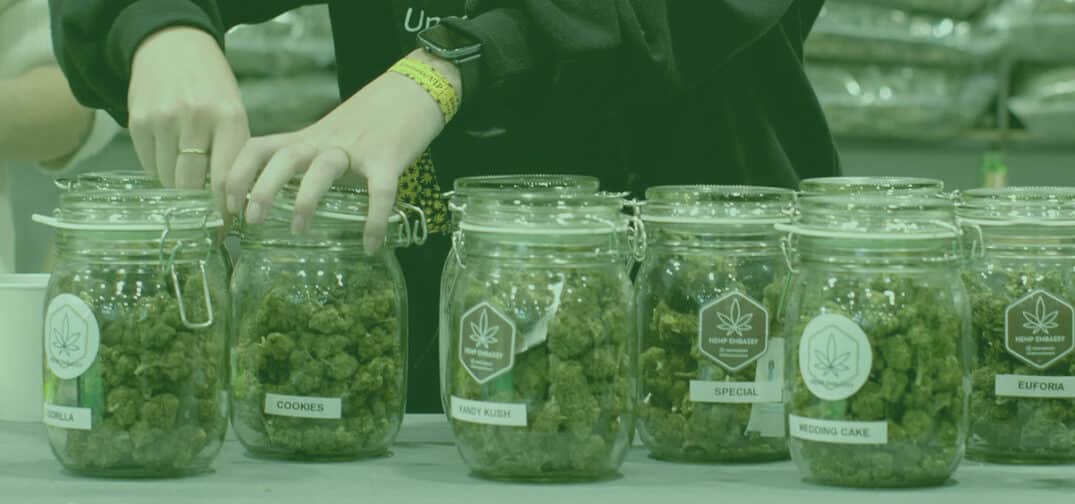As the cannabis landscape continues to evolve at a rapid pace, both within the United States and globally, 2024 stands as a pivotal year filled with potential breakthroughs and challenges. In this round-up, Ganjapreneur taps into the insights of industry professionals, offering a diverse array of predictions that shed light on the future of legalized cannabis. Over the coming weeks, we’ll be publishing more round-ups that will dive deeper into the issues facing brands, retailers, and the CBD/hemp industry. (Want to submit your predictions? Click here) Our focus in this installment is on federal reform, international policy, and the financial outlook of the cannabis industry for the coming year.
The journey towards federal legalization in the U.S. has been a complex and often unpredictable path. This year, experts weigh in on the likelihood of significant legislative changes and how these could reshape the industry. Meanwhile, on the international front, changing policies across various countries offer a glimpse into a future where cannabis may play a more prominent role in global trade and healthcare.
Potential Policy Changes & 280E Relief
We are cautiously optimistic that 2024 is going to be a good year for the cannabis industry. If a re/de-scheduling takes place, this could be great news for workers in the cannabis industry, with the elimination of 280e alone, which has squeezed profit margins considerably. A re/de-scheduling would give companies better margins giving them the ability to catch up to other industries by improving their compensation and benefit offerings to more easily attract new talent and retain the great employees they currently have. This should also allow Cannabis employers to gain access to better healthcare provider networks and 401k plans for their employees.
Kara Bradford, CEO Viridian Staffing
It’s an election year so that means campaign promises will be made! In general it will be up to cannabis organizations and supporters to pressure officials to present tangible solutions with timelines and accountability measures. Specifically, the recent very unfortunate death of an Oakland police officer responding to a cannabis business burglary may ramp up SAFE Banking talks and some movement will be made with rescheduling efforts post HHS’s position release.
Frederika Easley, Director of Strategic Initiatives The People’s Ecosystem
One word: unification. As I see it, we still don’t have a unified industry, and we aren’t advocating enough for the needs of small businesses and legacy producers. We need a coalition of people that represents the needs of the already existing community of consumers—and the people who provide cannabis to them—to make sure that federal legalization isn’t just a transfer of power over to mega corporations whose only interest is capital. Together, we are strong. Individually, we are powerless. If we are not operating together as a unit, the people who are aligned against us are going to take control of our industry.
Roger Volodarsky, Founder/CEO Puffco
We foresee several additional states legalizing recreational cannabis in 2024. Federal legalization of medical or recreational cannabis appears to be a long way off, as demonstrated by the inability of the SAFE Banking Act to pass in Congress. 280E is still the number one challenge the industry faces. The high tax burden stifles growth and profitability in the cannabis industry. 280E makes it difficult for cannabis businesses to reinvest in their operations or to compete with prices on the black market.
Cory Parnell, Principal/CEO BGM
Cannabis markets have been long capital constrained with a small investor pool due to being Scheduled 1 at the Federal Level. Before the next presidential election I believe there will be enough political pressure to re-schedule cannabis. This change may take a while to impact areas such as banking, payments, and interstate commerce, but it will have an almost overnight impact on investment capital. Many interested pools of money are waiting in the wings for this federal prohibition to drop. Ideally this will provided the needed injection of capital into struggling cannabis businesses, and at valuations that are competitive.
Kai Kirk – CPO, Blaze Solutions
Finance & Market Landscape
Regardless of the outcome of rescheduling or the potential passage of SAFER Banking, three key issues will remain unaddressed in 2024: 1) Cashless payments will continue to be scrutinized by card companies and will continue to be shut down 2) Access to capital will not improve and social equity license recipients will either struggle to maintain ownership or be unable to operate 3) The ripple effect of the collections crisis will start to be felt across the supply chain– beginning with cultivators– and will lead to an increase in layoffs and receiverships.
Abby Kaufmann, Sales Executive / Board Member CRB Monitor
The conversation about unethical and illegal industry behavior will have much more attention in 2023. The conversation around the larger cannabis industry and more specifically, cannabis social equity failing to, in any tangible way, heal impact caused by the War on Drugs will mature and we will start to see community demand comprehensive solutions to address comprehensive harm. These conversations will move burden away from the businesses and onto the cities and counties that implemented harmful War on Drugs policy.
Anthony Avalos, Co-Founder/President Council of Equity Advocacy San Diego
In 2024, the cannabis industry will implement substantial changes in how debt and overdue payments are managed. We can expect to see:
- Elevated Focus on Credit and Collection Practices: Companies will intensify their focus on implementing stringent credit evaluations and more effective collection strategies to navigate financial uncertainties.
- Emergence of Advanced Credit Scoring Tools: Integrating credit reporting systems into specialized associations will revolutionize how businesses assess credit risks, providing more nuanced and accurate evaluations tailored to the dynamics of the industry.
- Shift Towards Delegating AR Responsibilities: Enterprises will realize the significance of segregating Accounts Receivable functions from sales teams. This will streamline operations, enhance accuracy, and ensure proactive management of credit and collections.
- Accelerated Submission of Accounts to Collections: To minimize the impact of delayed payments, reduce risk of defaults and foster a more financially stable ecosystem, companies will expedite the submission of overdue accounts to collections within 90 days.
Brett Gelfand, Managing Partner Cannabiz Collects
2024 will be about the survival of the fittest, it’s that simple. Those cutting corners to make a quick buck will not withstand the pressures and pain points the industry is experiencing. Those of us who have taken the more measured, slow and steady approach and built firm foundations, done things the right way, will be rewarded.
Jeremy Zachary, CEO Zen Cannabis
Overall, event marketing spend will further contract and attendance will decline in 2024. Pre-pandemic, there was a surplus of events. Most came back but have reduced their footprint or frequency. And almost all major cannabis events in the western US in 2023 had 30-50% decline, or in one case, was outright cancelled. Trade shows reflect the health of an industry, often a leading indicator. However, licensed operators, the life blood of all aspects of our industry, lack access to capital which is the oxygen to a quintessential growth industry. Gone are the days when companies would exhibit just because they think they need to be there. ROI will be queen (there is a reason why this is the most powerful piece in chess). Trade events are amazing accelerants for professional growth and enterprise success. The ones that offer compelling content both in the conference rooms and exhibit floor, deliver a qualified audience, and listen to the needs of the market will capture the limited event spend. Or as Warren Buffet once said, “Price is what you pay. Value is what you get.”
George Jage, Co-Founder/CEO MJ Unpacked
We’ve seen an IP land grab going on for a few years now, and you should expect the pace of IP litigation to pick up in 2024, particularly for ancillary businesses, such as those involved in AgTech, vaporization, medical devices, and extraction. As competition heats up and new actors enter the market, patents will become a crucial differentiator. Not only do patents protect companies’ innovations, but they also provide long-term value for investors and acquirers. By enforcing their IP portfolios, companies will protect their market positions and demonstrate the strength of their patent portfolios.
Douglas Fischer, General Council Advanced Vapor Devices
In 2024, the cannabis industry is poised for unprecedented growth, but success won’t come to those who go it alone. The mantra for the year is collaboration. Businesses must recognize that operating in separate entities won’t cut it anymore. The key is to be stronger together—combining forces, pooling expertise, and forming strategic partnerships. Investors are increasingly looking for unity in the industry. A combined company of experts not only mitigates risk but also presents a compelling case for sustainable success. It’s a year where teamwork isn’t just an option; it’s the winning strategy.
Jordan Tritt, Founder/CEO The Panther Group
In a momentous year for the U.S. cannabis industry, the number of states with adult-use legalization will hit halfway. Cannabis is legal in 24 states going into 2024, and we’ll break 25 before ’25. This year, we’ll see hopeful operators in states across the country struggle to open their doors, as competition for capital continues to be fierce in ’24. Maryland and New York businesses will finally get the go-ahead but face a fried funding landscape and hurdle after hurdle to become operational. Bootstrapping, ESOPs, and tax loopholes will be all the rage, but only efficient, compliant operations will succeed. Legalization will push forward, as will medical-only programs, and quietly profitable companies will continue to grind, evolve, and expand with the ever-growing market. Many emerging state licensing opportunities in: Delaware, Kentucky, Maryland, Minnesota, New York, Ohio, and Virginia.
Sumer Thomas, VP of Regulatory Operations Canna Advisors
International Cannabis Outlook
Everyone needs to keep their eyes on Europe in 2024. Legalization is expected to become law in Germany in April, and leaders in several other European nations have indicated that once Germany legalizes it, they will proceed with similar policy modernization efforts in their respective countries. Legalization is going to look different in Europe than it does in North America due to continental agreements. However, there are still tremendous opportunities on the horizon, and industry members need to make moves in 2024 to be strategically placed for the coming years. It is very likely that Europe will see more activity than any other region on the planet, including activity in nations that may not be on everyone’s radar right now.
Alex Rogers, Founder/CEO ICBC
European cannabis will continue to implement more progressive cannabis policies and expand national markets. We expect that Germany’s latest cannabis legislation, which includes the reclassification of cannabis as a non-narcotic, expanding the medical market, to be a major catalyst. It’s already happening: Switzerland has begun experimenting with adult-use cannabis programs; the Czech Republic has announced a progressive new cannabis policy; Malta has already legalized cannabis social clubs; and the Netherlands has already kicked off fully legal, comprehensive pilot programs. The year 2024 will likely be deemed a major milestone for cannabis policy in Europe. The end of cannabis prohibition has been initiated, and new market opportunities are on the rise.
Niklas Kouparanis, CEO Bloomwell Group




























